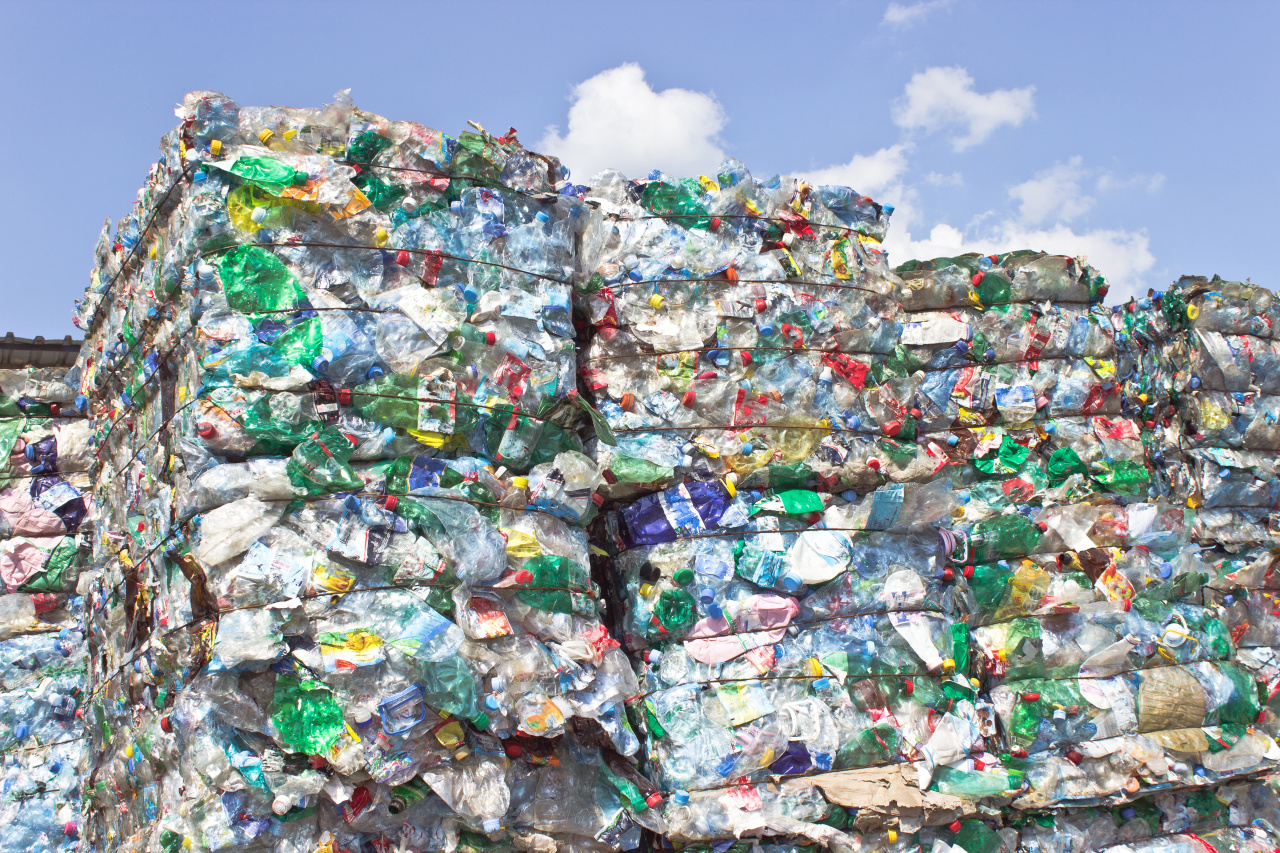[Newsmaker] Recycling centers face desperate battle to survive

The global coronavirus pandemic is threatening the future of plastic recycling in South Korea, as major recycling centers are incurring mounting losses amid a collapse in global demand.
Many are being forced to cut costs, work hours and head counts just to stay afloat, but a quick turnaround appears unlikely, industry insiders and government officials said.
“(Local) recycling centers are largely dependent on exports of collected recyclables, but trade is not happening these days,” said Ban Sung-tai, head of the resources recycling division at the Seoul Metropolitan Government.
“These centers are having a hard time, but there’s not much that can be done at this point. It’s not like borders will reopen tomorrow as if nothing happened.”
Trade has stalled not just in plastic recycling but in many other fields, as the deadly virus crippled major markets around the world with lockdowns, border closures, and port and transport restrictions.
Sales of polyethylene terephthalate plastic -- known as PET -- from eight major recycling centers in Korea fell 46 percent from an average of 16,855 metric tons from January to March to 9,116 tons last month, according to government data.
According to the Environment Ministry, Korea is usually around 60-70 percent reliant on exports for sales of PET. A large portion of locally consumed PET plastic is recycled and exported to the United States, Europe and Southeast Asian countries, all of which have been touched by the coronavirus.
Despite delays in sales, waste is piling up at recycling centers as the pandemic triggers a return to single-use plastics.
The storage rate for recovered PET at the eight businesses stood at 72.9 percent by the last week of April, up 15.1 percentage points from 57.8 percent in the first week of the month.
In normal times, an increase in waste collected would translate into greater profits for recycling centers. But amid the COVID-19 pandemic, that PET sits unused due to a lack of buyers.
Tumbling oil prices are another factor dimming the outlook for plastic recycling as a whole. Lower oil prices bring down manufacturing costs for new, unrecycled PET plastic, making recycling less economically viable.
The price of new PET plastic in March fell 35.5 percent from the same month last year, and experts point out that the price could continue falling as a result of market uncertainties.
Aware of the problem, the Korean government has decided to provide support to the recycling industry. Authorities are concerned about the current problems killing off the local industry, which suffered a major crisis when China suspended trash imports in April 2018.
The government plans to purchase 10,000 tons of recovered PET out of 18,000 tons in storage at 23 local recycling centers to help the industry avoid liquidity and insolvency problems. The government will pay half the market price. Additional financial support is also being eyed, including loan repayment suspensions for the affected businesses.
“We will find ways to help the local environment industrial sector to overcome the economic crisis stemming from COVID-19 and prepare plans to lower the burden for related research and development (R&D) bodies,” said Environment Minister Cho Myung-rae in a press briefing Wednesday.
But the recycling industry’s predicament is unlikely to end while the unfavorable business environment continues. Many recycling centers have stopped night shifts, reduced head counts and implemented shorter work hours, as there simply isn’t enough work for them.
“The Ministry of Environment stepped up to make up for some losses, but I don’t know how effective that will be in helping local recycling centers,” Ban said, adding that the authorities should work to have recyclables circulated within the country for better stability.
“The best scenario is that the COVID-19 situation comes to an end, but even then it will take several months for the industry to get back to where it was before the crisis.”
Next month the Environment Ministry is planning to announce limits on trash imports as a way to prop up the local industry.
By Ko Jun-tae (ko.juntae@heraldcorp.com)